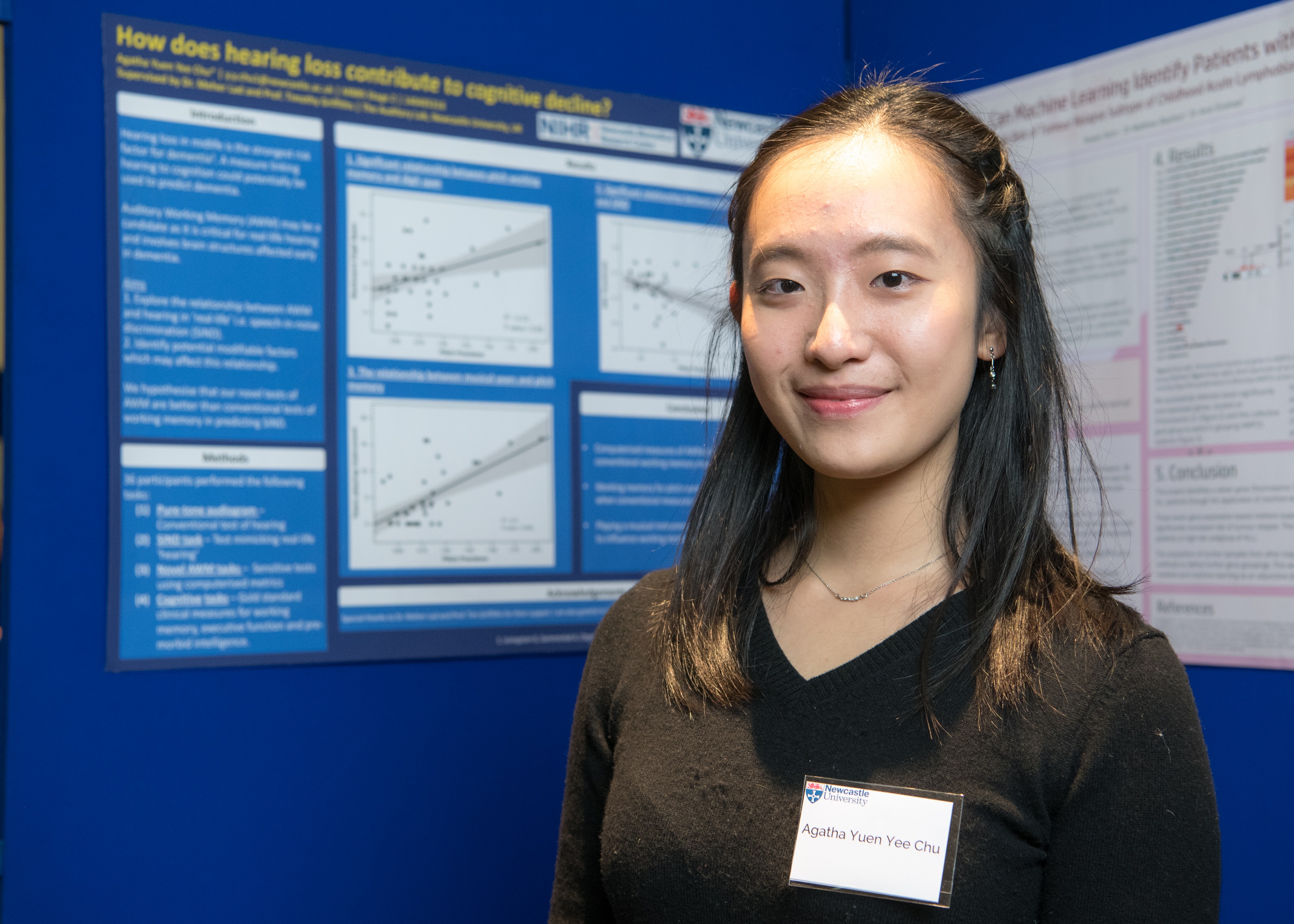2019 participants
 Agatha Chu
Agatha Chu
Hearing loss in middle-age is one of the biggest risk factors for dementia but the reasons for this are unclear. One potential mechanism is via reduced ‘speech-in-noise’ discrimination, which allows us to have conversations in noisy environments and better captures ‘real-life’ hearing. This is dependent on working memory, which has been shown by our research group to involve the hippocampus, a brain structure involved early in dementia.
We used a novel auditory task for working memory precision to show stronger correlations with speech-in-noise ability, as compared to conventional clinical measures, in a group of 36 participants with clinically ‘normal’ listening. This, with measures of sub-clinical hearing, also better predicted individual speech-in-noise discrimination ability.
Our study provides a link from central auditory ability to real-life hearing. Our task could potentially be used in the future to predict cognitive decline.
Funding source: Newcastle Biomedical Research Centre
Project supervisor: Dr Meher Lad
